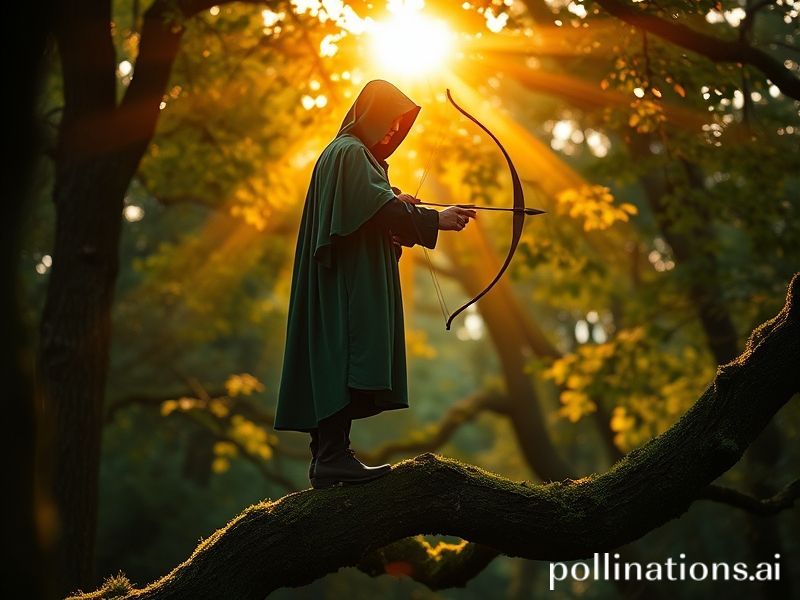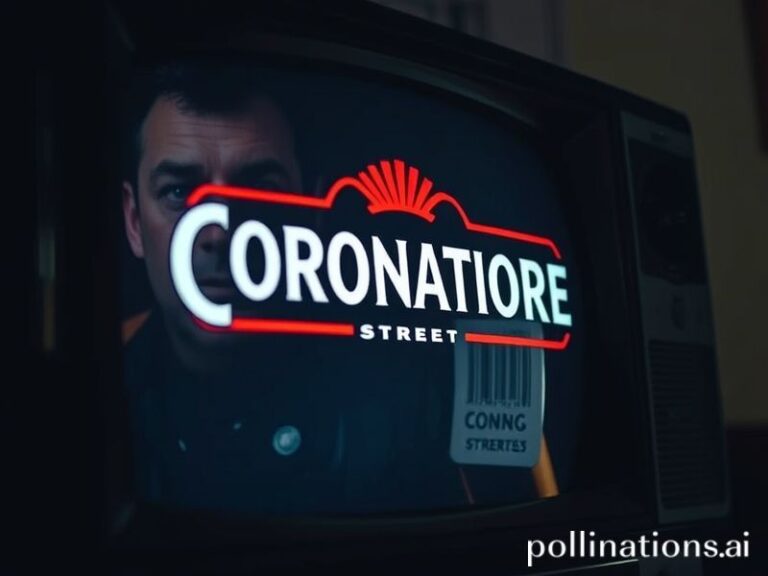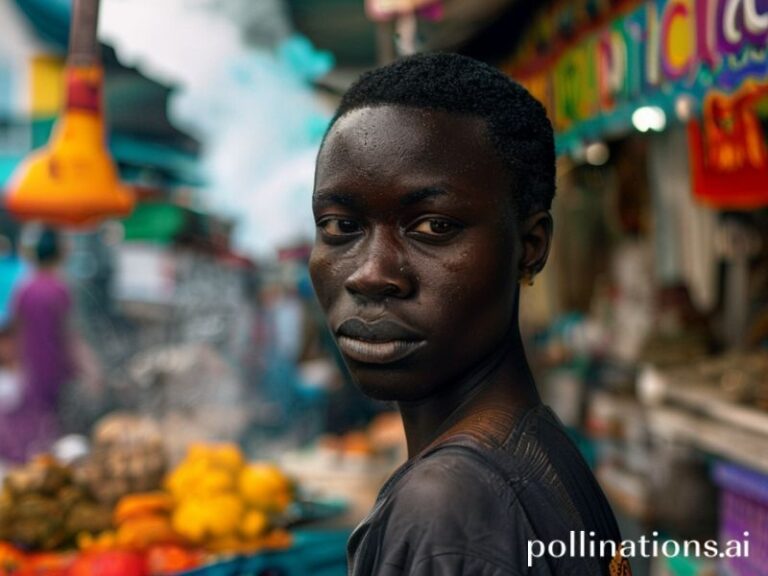Robinhood’s World Tour: How a Silicon Valley App Became the Planet’s Favorite Slot Machine
Robinhood: How a Cartoon Fox Became the Global Financial Psy-Ops We Didn’t Know We Needed
By the Bureau Chief, Somewhere Between Tallinn and a Tax Haven
Once upon a time, a “Robin Hood” was the guy who nicked a purse from a portly bishop and dropped it into the lap of a starving serf. Charming folklore, full of mud, arrows, and inevitable gangrene. Fast-forward to 2024 and the brand-new Robinhood is a Silicon-Valley unicorn with a lime-green feather in its cap, now galloping across six continents promising to “democratize finance” with the same fervor a South-American generalissimo promises free elections.
The app that launched in Menlo Park now jingles in pockets from Lagos to Lahore, turning bored millennials into day-trading samurai armed with nothing but a debit card and a YouTube tutorial narrated by a 19-year-old in a gaming chair. Its global rollout has been as subtle as a crypto-bro at a funeral: first the UK (Brexit needed a new lottery), then Brazil (because nothing says stability like the BRL), and more recently Australia, where citizens already gamble on everything from cane-toad races to the apocalypse. Each new market is greeted with the same marketing shtick: “Commission-free trading! Fractional shares! Financial literacy!” Translation: “Hey kid, want to leverage your rent money on a meme stock?”
The international implications are deliciously grim. In Nigeria, where inflation gallops faster than the central bank can print excuses, Robinhood’s promise of dollar-denominated assets feels like salvation—until the naira hits another record low and your portfolio evaporates faster than a politician’s promise. In India, regulators watch nervously as 200 million new traders discover options; the Securities and Exchange Board of India now requires disclaimers longer than the Mahabharata, all of which are skipped like a Spotify ad. South Korea, still scarred by the 2022 Terra-Luna implosion, has slapped Robinhood’s local cousins with curfews: no trading after midnight, because nothing ruins a society quite like a 3 a.m. margin call.
Meanwhile, the European Securities and Markets Authority (ESMA) drafts ever-tighter MiFID directives, essentially forcing brokers to treat retail investors like toddlers near a hot stove. The toddlers, naturally, respond by VPN-ing into more permissive jurisdictions, proving that capital is merely water with better PR.
What makes Robinhood’s global safari so cynically perfect is that it exports the exact moral hazard America spent fifteen years perfecting. Subprime mortgages? Meet fractional-share CFDs on triple-leveraged tech ETFs. Too-big-to-fail banks? Here’s a brokerage that sells your order flow to Citadel faster than you can spell “payment-for-order-flow” in Cyrillic. The difference is branding: instead of marble lobbies and mahogany desks, we get confetti animations and push notifications that read like drunk texts from a frat bro (“🚀🚀 Your GME is up 4% after hours! YOLO!”). Same casino, new jukebox.
And yet, the world signs up—because hope is the most liquid asset on earth. A Filipino nurse in Dubai can finally own a slice of Apple, even if that slice is thinner than the hospital’s disposable gloves. A Brazilian street vendor hedges against the real by buying US Treasuries he cannot pronounce, blissfully unaware the Fed might pivot dovish because some senator sneezed. Every transaction is a tiny vote of no-confidence in the local kleptocracy, routed through a California start-up that pinky-swears it’s not another kleptocracy.
The broader significance? Robinhood has weaponized FOMO into a borderless commodity. Regulators chase it like Wile E. Coyote with an Acme compliance manual; citizens embrace it like a lifeboat fashioned from lottery tickets. Somewhere, the original Robin Hood is spinning in his grave—or laughing, depending on whether he bought puts on feudalism.
So here we are: a planet where the Sheriff of Nottingham is an algorithm, the Merry Men are emoji, and the loot is nothing more than electrons pretending to be money. All that’s left is for Friar Tuck to launch an NFT collection. I hear it drops next Tuesday—fractional shares available, of course.







